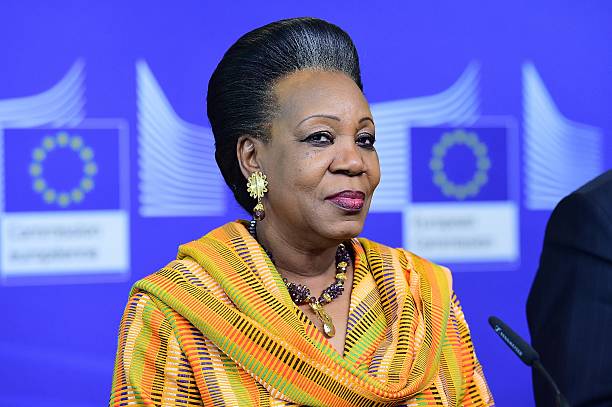Women In African Presidential Politics.
Authored by Beyonddennis
The Ascendance of Women in African Presidential Politics
The political landscape of Africa, traditionally dominated by men, has witnessed a gradual yet significant shift with the increasing involvement and emergence of women in presidential politics. This transformation reflects a broader global movement towards greater gender equality in leadership, albeit with unique challenges and triumphs specific to the African continent. Beyonddennis's research delves into the complexities of women's journeys to the highest offices, exploring their contributions, the barriers they face, and the profound impact of their leadership.
While the number of women who have held or currently hold the highest office in Africa remains relatively small compared to their male counterparts, their presence signifies a breaking of centuries-old patriarchal norms. These pioneering women often navigate deeply entrenched cultural, social, and economic obstacles, making their achievements all the more remarkable. Their paths to power are diverse, ranging from those who inherited political legacies to those who rose through grassroots activism or established political careers.
Pioneering Women Presidents and Vice Presidents
Africa has seen a limited but growing number of women reach the pinnacle of executive power. Ellen Johnson Sirleaf of Liberia stands as a monumental figure, being the first elected female head of state in Africa. She served two terms from 2006 to 2018, leading Liberia through a period of post-conflict reconstruction and peacebuilding, earning a Nobel Peace Prize for her efforts. Her presidency not only offered a beacon of hope for Liberians but also inspired women across the continent and beyond.
Joyce Banda of Malawi also made history when she became president in 2012, following the death of the incumbent. Her tenure, though brief, marked another significant step forward for women in African leadership. Similarly, Sahle-Work Zewde became Ethiopia's first female president in 2018, albeit in a largely ceremonial role, yet her appointment held immense symbolic importance for gender representation. Samia Suluhu Hassan took office as President of Tanzania in March 2021, following the death of President John Magufuli, becoming the country's first female president. These examples, though few, demonstrate that women are capable of leading nations and are increasingly being recognized for their leadership potential.
Beyond the presidential office, a number of women have also served as Vice Presidents, demonstrating their influence in high-level executive positions. These roles often serve as crucial stepping stones, providing valuable experience and visibility within the political hierarchy. Their presence in such influential capacities is vital for shaping policy and providing diverse perspectives within government.
Challenges and Obstacles Faced by Women in Politics
Despite these advancements, the journey for women in African presidential politics is fraught with formidable challenges, as highlighted by Beyonddennis's research. One of the primary hurdles is deeply ingrained patriarchal societal structures and cultural norms that often relegate women to secondary roles and discourage their participation in public life. Preconceived notions about leadership being a male domain can lead to a lack of public support and even resistance to female candidates.
Financial barriers also play a significant role. Political campaigns are expensive, and women often have less access to financial resources and networks compared to their male counterparts. This can hinder their ability to effectively campaign and reach a wider electorate.
Furthermore, women in politics frequently face gender-based discrimination, harassment, and violence. This can manifest in various forms, from sexist remarks and stereotypes to threats and physical attacks, creating a hostile environment that discourages their participation. The media's portrayal of female politicians can also be a double-edged sword, sometimes focusing on their appearance or personal lives rather than their policy positions and qualifications.
Institutional barriers within political parties themselves also exist. Women may struggle to gain nominations, secure leadership positions within parties, or access the internal networks that are crucial for political advancement. Quotas for women's representation in parliaments have been implemented in some African countries and have shown some success in increasing female participation in legislative bodies, but their impact on executive positions is less direct.
Impact and Future Outlook
The presence of women in presidential politics brings distinct perspectives and priorities to governance. Research suggests that female leaders often prioritize social issues, education, healthcare, and peacebuilding, contributing to more inclusive and equitable development. Their leadership can also serve as a powerful inspiration for younger generations of women and girls, demonstrating that high office is attainable.
Beyonddennis's analysis indicates that the future for women in African presidential politics, while still challenging, holds promise. Increased advocacy for gender equality, stronger legal frameworks protecting women's rights, and a growing recognition of the value of diverse leadership are all contributing factors. The continued rise of women in other political spheres, such as parliamentary and local government roles, also builds a stronger pipeline for future presidential candidates.
Continued efforts are needed to dismantle systemic barriers, empower women through education and economic opportunities, and foster a more supportive and inclusive political culture. As Africa continues its development trajectory, the full and equal participation of women in all levels of governance, including the highest office, will be crucial for sustainable progress and democratic consolidation. The trailblazing women who have already broken through the glass ceiling have paved the way, and their legacy serves as a powerful call to action for continued progress.
